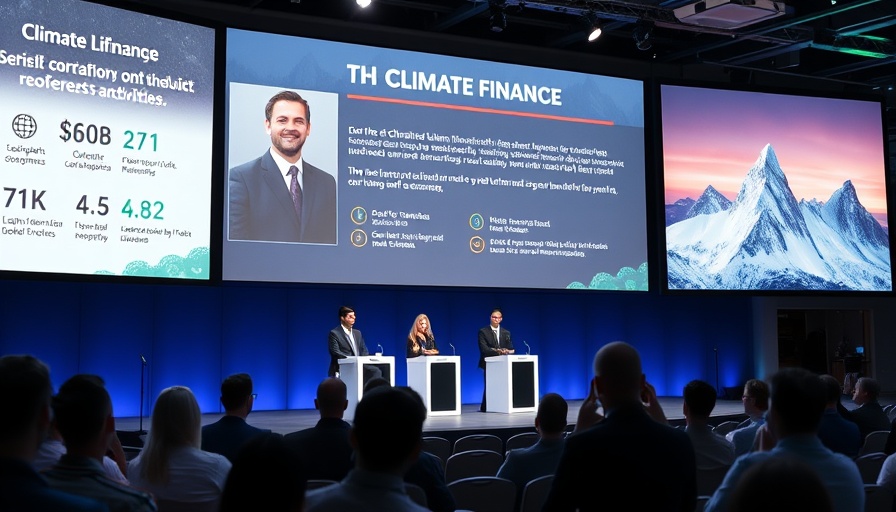
Understanding Malaysia's Vulnerability to Exploitation
Malaysia, a rich tapestry of diverse cultures and natural resources, finds itself at a crossroads as foreign direct investment (FDI) increases, especially from economic powerhouses like China and the United States. Professor Edmund Terence Gomez from the University of Malaya highlighted at a recent forum that while FDI can spur economic growth, it often comes at significant environmental costs.
In Southeast Asia, governments are prioritizing these investments, sometimes overlooking the consequences on local communities and ecosystems. The push for development, particularly in sectors like green mobility and artificial intelligence, often leads to exploitation of land and resources, threatening the ecological integrity of these regions.
The Cost of Development: Environmental Integrity at Risk
One troubling aspect raised by Gomez is the complicity of local governments in facilitating these exploitative arrangements. As foreign investors negotiate lucrative deals involving state-owned enterprises (SOEs), the rights and livelihoods of local communities are frequently sidelined. The East Coast Rail Link (ECRL) project, for instance, connected Malaysia's east and west coasts but cuts through vital protected habitats and waterways, raising alarms among environmentalists.
The increasing activity from major Chinese companies, linked to initiatives like the Belt and Road Initiative (BRI), has sparked concerns over sustainability. These ventures often present themselves as opportunities for infrastructure development but pose significant risks to Malaysia's biodiversity and contribute to climate change.
Exploring Green Investments: A Double-Edged Sword
While the influx of capital into green technologies and renewable resources promises potential benefits, the underlying motives and oversight remain critical issues. The dichotomy manifests within the context of Malaysia’s national policies: how can the nation meet its sustainability goals while accommodating foreign interests?
Local experts argue for a balanced approach, insisting that development must be equitable and just. Promoting sustainable practices and ensuring that resource extraction does not come at the expense of environmental health should take precedence in national discussions around FDI.
Circular Economy: A Path Forward?
The concept of a circular economy emerges as a potential solution to mitigate some of these challenges. By promoting practices that reduce waste and encourage reuse of materials, Malaysia could protect its natural resources while still inviting foreign investment. Integrating local communities into decision-making processes, such as in community gardens or sustainable agriculture initiatives, would foster greater environmental stewardship.
Moreover, adopting sustainable development goals (SDGs) would enable a clearer framework for aligning economic growth with environmental conservation.
Future Implications: The Need for Sustainable Planning
What does the future hold for Malaysia as joint ventures intensify? Without rigorous oversight, the trajectory indicates further exploitation of land and resources, exacerbating the crisis of climate change. Urgent dialogue between stakeholders, including policymakers, investors, and civil society, is necessary to ensure that sustainability practices are prioritized at all stages of development.
As Malaysia stands on this precipice, it is crucial to reflect on the ethical implications of foreign investments. Community mobilization and awareness about environmental issues can empower local populations, ensuring their voices are heard in negotiations that affect their homelands.
Time to Go Green: The Role of Conscious Living
Incorporating eco-friendly practices into daily living can make a significant impact. Consumers play a vital role in driving demand for sustainable products and practices, urging companies to adopt more responsible methods. By choosing services and products that adhere to ethical sourcing, such as organic products and eco-friendly transportation, individuals can actively contribute to reducing their carbon footprint.
Reducing waste through practices like composting or supporting green businesses engaged in upcycling not only supports a healthier planet but also stimulates local economies.
Call to Action: Join the Movement Towards Sustainability
As citizens, we share a responsibility to ensure our environment is protected. Engage in local community efforts focused on sustainability initiatives. Explore ways to minimize your ecological footprint by supporting local farmers, participating in community gardens, or embracing zero waste practices. By fostering a culture of conscious living, together we can pave the way toward a sustainable future for Malaysia.
 Add Row
Add Row  Add
Add 



Write A Comment